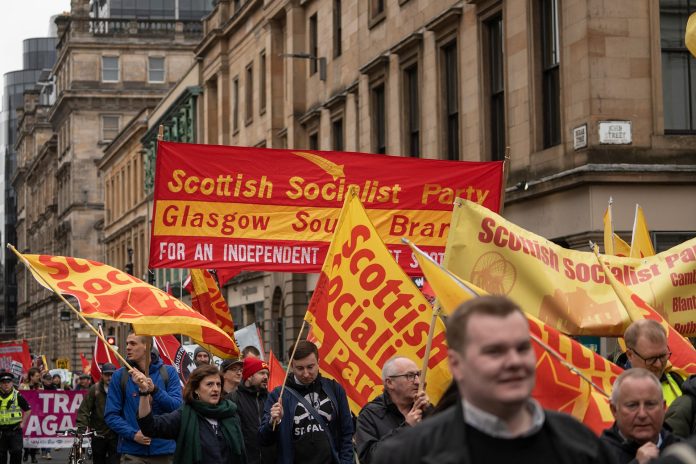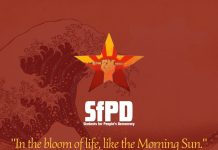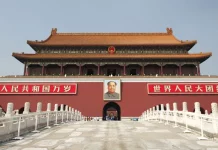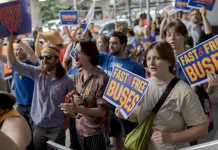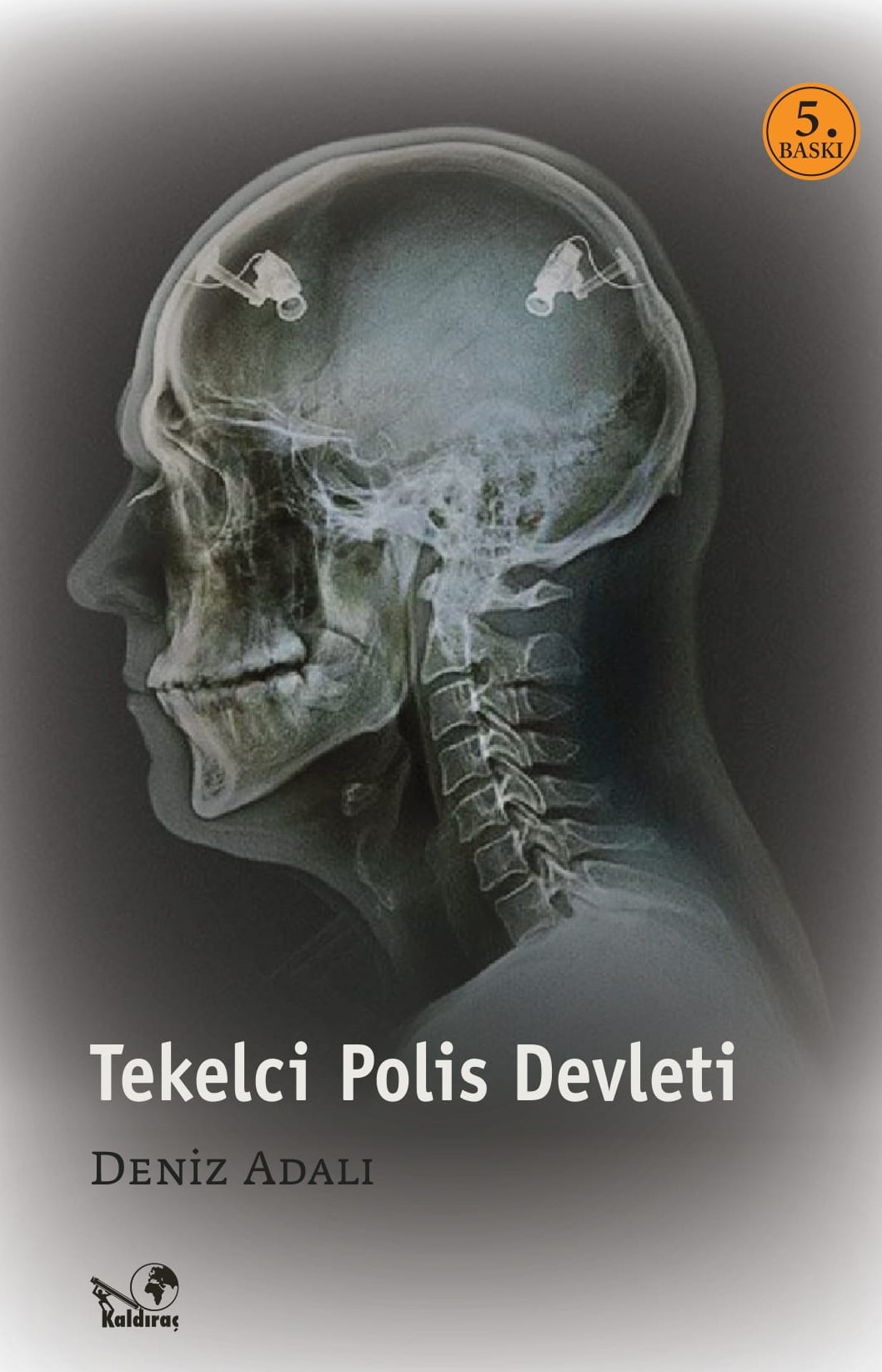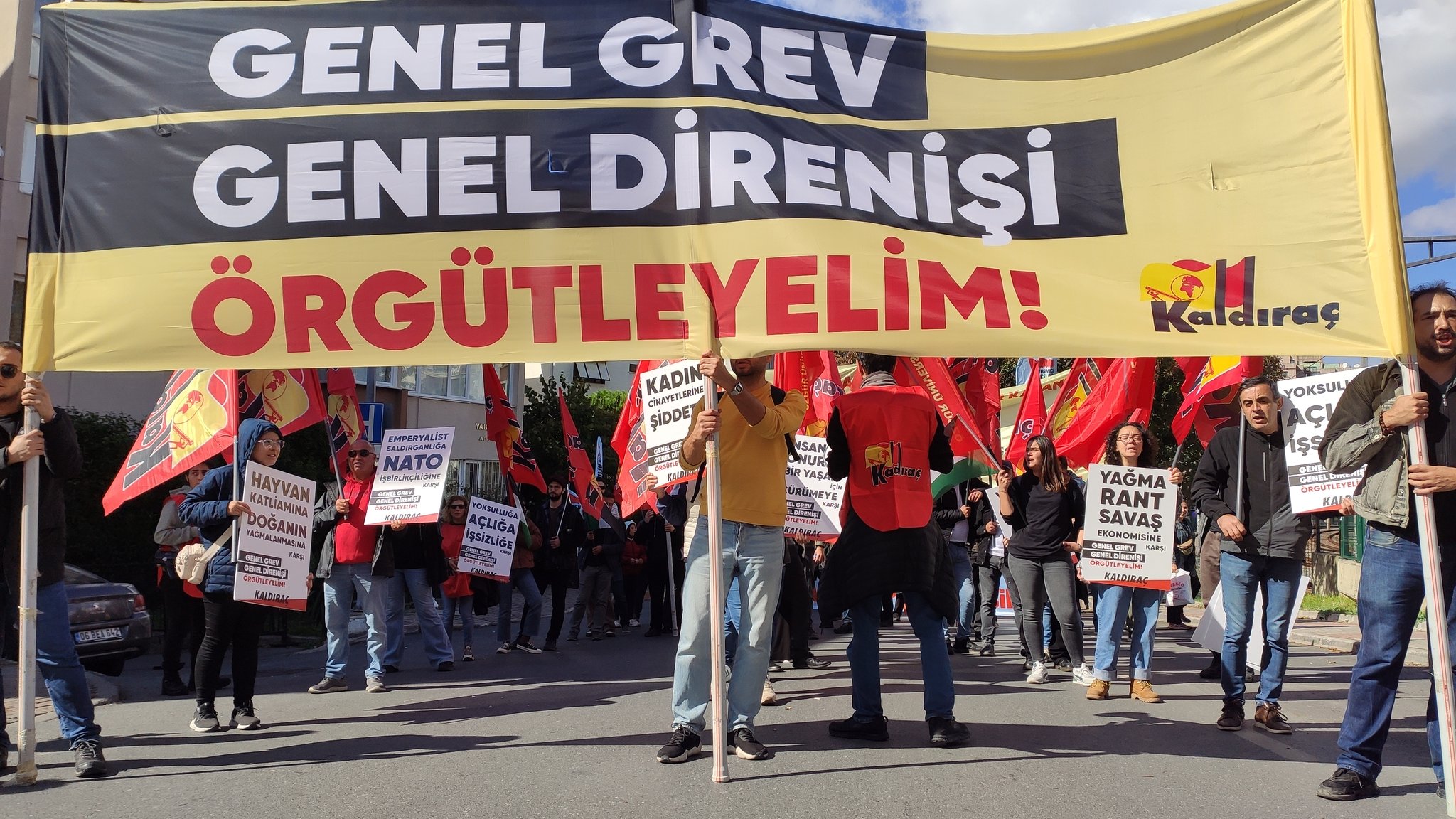In September, the United Kingdom recognized Palestine as a state while continuing arms exports to Israel. It designated the action group Palestine Action as a terrorist organization and detained thousands of its supporters for violating counterterrorism laws. Also in September, the UK witnessed the largest racist and anti-immigrant march in its history. We asked the Scottish Socialist Party (SSP) about all these developments and the current state of domestic politics, the working class, and the revolutionary movement. Alongside their assessments of current developments, they shared their perspective as a party on the elections, the respectable gains they achieved in the local elections held in March, and their agenda for the 2026 general elections.
[Jamie O’Rourke, member of the SSP Executive Committee]
- Can you describe your analysis of the internal policies of the recent Labour government so far? What has been the impact of the Labour Government on the working class?
Firstly, we would like to thank Kaldirac for their unwavering commitment to providing coverage to international socialist and communist groups. Your solidarity has been incredibly valuable, and we appreciate the opportunity to discuss the current state of UK politics with you and your readers.
In 2024 Kier Starmer’s Labour Party won a historic majority in the UK parliament: they were now a government with the parliamentary power to enact major change. The UK public who elected the Labour government did so not out of any love for Kier Starmer’s Labour (which was now a centre-right Capitalist party almost indistinguishable from the Conservatives), but rather out of total disgust and exasperation with the outgoing Tory government who left behind them a cost of living crisis, decaying working conditions, and mass discontent. Since then, Starmer’s Labour has swiftly collapsed.
Since the 2024 landslide, Starmer and his team have been embroiled in a series of scandals – policy related and otherwise – causing him to become historically unpopular more quickly than even his harshest critics might have expected. Financial scandals, genocide apologism, and increased austerity were all this new government had to offer, and Britain’s working class came to quickly understand this. The appointment of Peter Mandelson, known close friend of Jeffery Epstein and longtime icon of the Labour Right, as US ambassador has resulted in Starmer’s most recent major controversy, leaving him in an increasingly untenable position.
The most sinister aspect of Starmer’s Labour – alongside their proscription of Palestine action, their clamping down on protest, and their unwavering support for Israel and outright refusal to refer to their genocide in Gaza in such terms – has been their distinctly anti-migrant bent. Starmer’s team have taken the tactical decision to adopt even more racist, xenophobic, and divisive rhetoric than even previous Tory Governments. Starmer infamously referred to the UK as “an island of strangers”, occupied by foreign invaders during a press briefing. This government has shamelessly stoked the fires of division and scapegoated the country’s most vulnerable: divide and rule tactics used by the British establishment since the days of Empire. This has led to violence and increasing support for the far right.
With reports this week of Starmer losing his temper in public and shouting at his lead adviser for failing to “protect him”, it seems like the PM’s days are numbered, but socialists should take little solace in this. Starmer is the uncharismatic face of the Labour Right, but when the establishment inevitably ousts him and replaces him with someone less universally hated, the controversy and chaos this causes will only embolden the rising tides of the far right. Starmer’s unpopularity is a sign – not the cause – of the demise of the Capitalist Labour Party: the Thatcherite old guard in the Conservative Party have made way for the New Tories in the form of Starmer’s Labour (aka “New New Labour”, “Blue Labour”, “Liebour”, etc); similarly, if the Left does not rise up to meet the challenge of this precarious and difficult moment, Starmer’s Labour will make way for the Far Right Reform Party – an even more dangerous group of Margret Thatcher fanatics.
- What is the current status of the working class and the revolutionary movement in the UK and Scotland more particularly?
The revolutionary movement in the UK has largely followed the fortunes of the revolutionary movement across Europe and the Western world. There have been ebbs and flows, but it is undeniable that class consciousness has collapsed since the fall of the Soviet Union and – domestically – since Thatcher’s defeat of the miners.
In 2025, the revolutionary Marxist movement remains largely fractured and confused. The closest the Scottish socialist movement has come to unity and success came with the SSP’s 2003 electoral success: since 2007 there has been no organised socialist presence in the Scottish parliament, and the sometimes significant gains and successes of our movement have been scattered and irregular.
Over the past couple of years however, the swift collapse of the two party system in the UK and the constantly increasing turmoil within the SNP in Scotland has resulted in an increasing unstable and unpredictable political landscape. This alongside the ongoing genocide in Palestine and the disgust of the majority of the British public at their government’s support for Israeli war crimes has opened a new space in UK/Scottish politics for socialist and pro-Palestine voices.
However this political instability has also led to an increase in far right representation in British politics. Anti-migrant rhetoric has spread through the UK like a cancer, with the loudest slogan in British politics being “Stop the Boats” [referring to the small rubber boats full of refugees which have become the country’s number one antagonist over the past few years]. The SSP and our comrades on the left have done our part to fight the rising tide of the far right (including on Kenmuir street in 2021 where brave activists including some from the SSP blocked the removal of two migrants by police in a major symbolic victory); however, the media and foreign billionaires have ensured that far right voices are amplified above all others.
Elon Musk has personally funded a huge amount of far right agitation in the UK, and has given his blessing (and his financial backing) to some of the most toxic voices in British politics, including Tommy Robinson and MP Rupert Lowe (who was kicked out of the far right Reform Party for his extremist views). He has criticised Reform leader and face of the far right establishment Nigel Farage for being “soft” and too left wing.
Meanwhile, our balanced and non-biased British media has gone above and beyond to advertise the far right. Despite representing 0.7% of the MPs in UK Parliament, the Reform Party has featured in a sickening 25% of all news items reported by the UK state broadcaster the BBC (the same BBC which shuts down all pro-Palestine sentiment, and sacks its presenters for expressing left wing sentiments). The Scottish Socialist Party has been virtually blacklisted from the mainstream media, being the only established party to be denied the right to airtime on the either BBC Scotland or STV during the Hamilton by-election.
The trade union movement continues to play its part to fight against the UK’s increasingly draconian trade union laws and boost class consciousness, but too many UK trade unions continue to tie themselves to the Labour Party: this weakens them immeasurably. There are honourable exceptions: in Scotland, the FBU (Fire Brigade Union) stood shoulder to shoulder with socialist activists during the Hamilton By-Election to call on voters to stay away from the xenophobic, anti-worker Reform Party. It is in collaboration with unions like the FBU that Scottish socialists will rebuild the workers movement, and lead the battle against the far right.
- Recently, the SSP secured some important gains in Glasgow’s Southside Central by-election. Can you talk about the election process, the SSP agenda, and the results of the election?
The SSP won one of its strongest votes in years in this by-election, winning a greater combined vote than the two far right parties (Reform and UKIP), and also defeating the Conservatives and the Lib Dems. Whilst the results of a local by-election should not be exaggerated, we also shouldn’t overlook what was impressive and meaningful progress in the seat. This campaign was by far the underdog: we were the only party running without the backing of wealthy donors, we had next to no media coverage, and have regularly been excluded from mainstream television and social media for over a decade.
How then did we achieve such a strong result, and how did we go on to receive a respectable (if on the face of it less impressive) result in the heavily contested Hamilton by-election earlier this year? Perhaps the most important factor was our tireless on the ground campaign: we outnumbered the larger parties massively on the streets, holding regular street stalls peopled with committed activists, launching a huge leafletting campaign (which even our opponents admitted was delivered on a scale far beyond our estimated capabilities), and continued our regular attendance of all relevant rallies, demonstrations, marches, and protests in the city. We hosted not only a public meeting, but also a film night showcasing a documentary about the genocide in Palestine, and several “socialist street surgeries”, where experienced activists used loudhailers to deliver SSP policies to crowds across the seat. We also had the benefit of a wonderful first time candidate, Olivia Murphy, a young health worker and trade unionist.
We deployed the same tactics in Hamilton – which was Scotland’s major political battleground for several weeks – returned a result which was in some ways as strong as we could have expected: this seat was a three horse race between the massively unpopular but ultimately successful Labour Party and their oafish candidate (dubbed “Disappearing Davey” and “The Invisible Man” due to his unwillingness to appear in public), the floundering and ineffectual SNP, and the far right Reform Party, who received the majority of the press and TV coverage.
We also stood another fantastic candidate, trade unionist, socialist, and college worker Collette Bradley, who was by anyone’s measure the most impressive candidate politically: she received the most popular support at each of the hustings she attended, and left other candidates looking totally ill-suited for the job by defeating them in a fair political exchange – unfortunately, a tiny minority of politically astute locals actually attended these events.
In Southside, we were the only party to call out the establishment line followed by most of the mainstream parties. Starmer has made clear that he is keen to show his loyalty to Trump and the American Empire, repeating the talking points of the US regime whilst standing side by side with the President during his state visit. The Labour Government has also flirted with the Reform policy of selling off large parts of the NHS to private US health insurance companies: Trump is keen to acquire the UK healthcare system, the collapsing Empire loots its vassals. In both election campaigns, we exposed Reform’s sinister plans and helped to dissuade any potential Reform voters from lending their vote to the far right – this was more successful in Southside where the national media played a smaller role, but when the full power of the state rolled into town in Hamilton with its ready-made narratives, the far right naturally made gains.
The result in Southside – and the modest success in Hamilton – showed beyond a shadow of a doubt that the only response to the rise of the far right is socialism.
- How is the SSP preparing for the upcoming elections in Scotland in May 2026? What are some of your primary proposed agendas and policies?
The SSP have been building our forces and mobilising the membership with the goal of standing in ALL 8 regions of the country in the 2026 Scottish Parliament elections. This would be the biggest electoral challenge we have mounted in some years, and would mean that every person in the country would have the opportunity to cast their ballot for a dedicated working class party in 2026. This is a mammoth task, but it is one that a fighting socialist party must be ready and willing to carry out.
A founding principle of the SSP is that all elected representatives who stand under our banner must, nonnegotiably, agree to take no more than the average skilled workers wage. All previous SSP MSPs have done so, all future SSP MSPs will do the same.
Many of the policy areas we focus on will be those we have campaigned on throughout our existence: high quality environmentally friendly council housing (with the policy of building 100,000 new, quality council homes); a staunch anti-war stance and a call for the end to Israel’s genocidal war on Palestine and the holding to account of those who have facilitated it (as well as an end to ALL public funding of arms companies); a socialist green new deal, tackling the climate crisis by taking on the corporations responsible for mass pollution rather than punishing workers; free public transport for all, tackling isolation, poverty, and unemployment; free delicious and nutritious school meals for all pupils regardless of age; creating jobs in health and education whilst overhauling infrastructure and kicking the private sector out of our public services; scrapping the regressive council tax to replace it with the Scottish Service Tax; worker’s rights; mass public, democratic ownership; and an independent socialist Scotland playing an important role in supporting socialist struggles internationally and flying the red flag of socialism proudly on the world stage.
That said, we are not an electoral Party. Richie Venton, writing in The National, had this to say about our attitude to elections.
“The SSP, in short, stand in elections as part of our struggles in the streets, workplaces, colleges and communities, to give those battles a working-class socialist voice in arenas like Holyrood. We have a proud track record as the already existing socialist party in Scotland, with 27 years’ readiness to revolt against capitalism and whatever party is in government imposing the consequences of that profiteering, inherently exploitative system. Even one socialist MSP would be an invaluable tribune for the struggles of people in our communities and workplaces. We want a return to the situation where working-class people have a reliable, uncorrupted voice in Holyrood. That’s why the SSP insist any MSP elected for the party would live on the average Scottish worker’s wage, not the £74,507 grabbed by those from every other party. In an age where people are enraged by political corruption and politicians they brand as self-seeking chancers, this core principle of the SSP – socialist MSPs living on a worker’s wage, in touch, uncorrupted – is not only unique, but an indispensable weapon against even more well-heeled chancers such as Nigel Farage gaining dominance – and whipping up racist division as he does.”
The SSP have a strong socialist platform with more mass appeal and long term potential than any of the mainstream political parties. We are prepared to go up against the full power of the state machinery, in the form of the capitalist press and media, the multimillionaire companies and individuals who represent the interests of the ruling class, the rising tides of the far right, and a government which has shown itself more than willing to criminalise protest.
We have no illusions about this being easy, and have no faith in the bourgeois electoral system to give a socialist party a real chance. Struggle, however, is one of the SSP’s core tenants, and we are prepared for the uphill battle of putting worker’s representatives into the Scottish parliament.
- Reform UK is making significant gains and has overtaken both Labour and the Tories according to some reports. What are the proposed policies of Reform, and how can we explain their rise? How strong are Reform in Scotland? How should the working class and socialists react to this development?
On Saturday the 13h of September, the UK saw the largest fascist march in its history as 110,000 anti-migrant protestors descended upon London draped in English flags and Union flags. This march was organised and fronted by far right cocaine addict and violent criminal Stephen Yaxley-Lennon (better known as Tommy Robinson).
In Scotland, things have been different. Whilst the SSP continue to warn against Scottish Exceptionalism (and have done so unapologetically since before the 2024 election results), we have undeniably held back the far right in Scotland more effectively than anti-racists in England have done. This is not a slight on our English comrades, who have been fighting on a far more difficult terrain. Several major (and not so major) racist, fascist, and far right demonstrations have been attempted in Glasgow over the past two years. At each and every turn, anti-racists have far outnumbered the far right.
Most recently, on Saturday 20th September, Tommy Robinson’s thugs attempted to repeat the powerful display of strength that they had produced in London the previous week, and were outnumbered 2 to 1 on the streets of Glasgow; a diverse crowd of anti-racists, including dozens of SSP members and a huge Palestine bloc, faced down a gaggle of (largely) drunken thugs. Several counter protestors were punched and hit with projectiles, but ultimately the union jack waving fascists, misguided reactionaries, and drunken thugs were run off the street. The old chants of “there are many many more of us than you” and “the workers united will never be defeated” proved true, and the potential of the left in Glasgow was on full display. Importantly, the fascist march was attended by several Reform councillors: the acceptable establishment faces of the far right mixed with BNP members, white supremacists, and self-confessed nazis, all the while claiming that the rally was a peaceful expression of discontent with the political establishment. At the head of the far right rally was a banner painted with the image of Charlie Kirk, dedicating the demonstration to his memory.
Little over a month ago, an outright fascist march took place in Glasgow, without the vague attempts at respectability that other far right demonstrations have reached for. This march was organised by Nigel Farage’s first major political group, UKIP, now an extremist Christian fundamentalist right wing organisation reinvented by the fascist Nick Tenconi. The marchers carried large black crosses and Israel flags, chanting “Christ is king” and “Mass deportations now”. This pathetic group was vastly outnumbered and chased around the city by a huge group of anti-racists. The UK government sent police from various regions of the UK (including the notorious Met, from all the way down in London) to attend the event, not to protect the public or the anti-racists from the fascists, but to protect the fascists from us: anti-racists were kettled, pushed, and verbally threatened by state thugs. In images eerily similar to the Battle of Cable Street in the 1930s, nazis were escorted by police through our streets whilst concerned members of the public were victimised and criminalised for fighting back against fascism.
Less encouragingly, the UK wide assault on migrant hotels by violent thugs also hit Scotland, a hotel in Falkirk which housed migrants was attacked by racists, with the anti-racist counter protestors outnumbered 4 to 1. SSP National Trade Union Organiser Richie Venton reported in the Party’s fortnightly collum in The National that protestors “were part of a baying mob, some of them giving Nazi statues, chanting the fascist National Front’s slogan of the 1970s, there’s no black in the union jack. In amongst this crowd were those holding banners with a skull pierced by a bloodstained dagger, demanding Kill Them All, Let God Sort ’em Out. The lumpenised sections on this demo screamed abuse at women stewards on the entirely peaceful anti racist demo, calling them cunts, and described all of us as paedos.” In reality, a disproportionate number of the fascist organisers have prior convictions for violent and sexual crimes, some against children. Falkirk is the site of a great deal of fury, due to the closure of Grangemouth Refinery (the biggest industrial attack on the working class in decades) and the Alexander Dennis bus manufacturing plant. The SSP has spearheaded the campaigns to save both of these workplaces, winning the admiration of local councillors from various parties and having the honour of the Keep Grangemouth Working spokesperson and union rep Chris Hamilton as a guest speaker at our 2024 National Conference. Nevertheless, many locals have drawn the conclusions which the establishment has been driving them towards, and have blamed migrants for their suffering rather than identifying the true guilty party: the capitalist class.
Comrades should note that this is not quite as disheartening as it sounds: on the same day that the racists outnumbered us in Falkirk, Glasgow hosted the largest Scottish Pro-Palestine demo in over a year, with thousands of us marching through Glasgow with renewed energy to call for an end to Israel’s genocidal expansion.
- What is the current state of the pro-Palestine struggle in the UK and Scotland? What is your assessment of Palestine Action’s proscription as a terrorist group and the protests that are still continuing in support of Palestine Action? What is the significance of the ruling for social movements and the working class in the UK as a whole?
The aforementioned major national demo for Palestine was a huge moment for the pro-Palestine movement in Scotland. This demonstration was the largest Scotland had seen since the early days of the genocide, with attendees moved into attendance by the images on our TV screens of starving children suffering the dread impact of famine. As we approach the second anniversary of the genocide, Scottish socialist and Palestinian groups continue to campaign on the streets, in our workplaces, and in our unions for the end of the genocide, and for the end to our government’s support of Israel. In both Scotland and the UK more widely this has fallen on deaf ears.
Kier Starmer and David Lammy continue their complicity, with the UK government refusing to accept that the Israelis are indeed committing genocide. This is partly out of a desire for self-preservation: Starmer and Lammy as individuals have been some of the most vocal supporters of the Israeli military action, and when the dust settles they face the very real danger of legal consequences for their actions – they undeniably face political consequences, as Labour has all but lost the Muslim vote, historically a section of the public who would have backed Labour in huge numbers.
The Labour gov has made it clear that they plan to reindustrialise Britain through war – preparing the country for battle against the false enemies outwith, and distracting the workers from the battle with the real enemy at home. One of these false enemies that Starmer is eager to take on – as evidenced by his sickening grovelling before the US president – is Palestine. Starmer earned a literal pat on the back and a “That’s good!” when he declared with the voice of a child attempting to win an adult’s approval “Let me be absolutely clear on this, Hamas is a terrorist organisation”.
The Scottish Government have continued their middle class liberal gesture politics, offering little real support to the Palestinian people and nothing more than empty words to the Palestine movement. Recently, the SNP have attempted to appear principled and anti-war by pledging to end support to arms companies which support Israel’s genocide – a late reaction to the UN ruling. This is a smokescreen however, as the SNP followed this announcement up with the news that they would be giving increased subsidies to arms companies which provide weaponry to Ukraine, effectively nullifying the impact of their previous pledge. It is hard to see this implicit U turn as anything other than a message to the war industry that “We stand with you, we are not a threat to your interests”.
The Palestine movement has only been strengthened by the proscription of Palestine Action, a direct action group which was involved in throwing red paint over an RAF plane in protest over the British air force conducting surveillance flights over Gaza on behalf of Israel. The ban makes it illegal to express any support for the organisation, and anyone who does so will be labelled a terrorist and arrested, and has seen hundreds arrested across the country on terrorism charges over the past few months for holding signs, making comments, and posting things online. Irish author Sally Rooney is one of the few famous faces to flaunt the ban, declaring that she supports the organisation morally and financially and will continue to do so. The group has since renamed itself after home secretary (and wife of former Labour Chancellor Ed Balls) Yevette Cooper, declaring that if Labour wants to criminalise Palestine Action, it must criminalise real criminals like Cooper. This ban has largely been viewed as a failure even within the Labour Party, who have had to contend with the optics of jailing peaceful protestors – including elderly female priests – for holding cardboard signs reading “I oppose genocide. I support Palestine Action.” This crackdown cannot continue for much longer, but it is a question of how much longer the Labour administration can keep it up before they are forced to perform yet another U turn and abandon this much hated policy.
Comrades should note that the “pro-Palestine” SNP – ruling party in Scotland – did not vote against the proscription. They abstained.
- Jeremy Corbyn and Zarah Sultana have recently announced the formation of a new left-wing party in the UK. The party has claimed to have received more than 600,000 registrations since it was formed. This would make it the most popular party by membership, with almost twice Labour’s membership (currently the Labour Party has the highest membership of all UK political parties). What do you think about this new initiative by Corbyn? How is the process of forming this new party going, and what overall impact will it have in the UK? How is the news about this new party received in Scotland?
The events of the past few days will no doubt prove dispiriting to many on the left. Corbyn and Sultana have suffered what seems to be an irreconcilable split, and grassroots activists across the UK rush to salvage a Party which – technically – does not even exist yet. Despite the undeniable popular energy and excitement surrounding the project, it seems that things have hit a fairly damaging roadblock before the barebones basics of policies, structures, leadership, or even a name have been decided on.
We have been clear from the beginning: we are willing to work with anyone who shares our core principles and aims, and to collaborate on relevant issues with those who share enough common ground with us. There are several issues for us which are red lines: will this new party (should it materialise) back independence? Will it agree that all of its elected representatives will live on a worker’s wage? Will it back the idea of free public transport for all? All of this remains to be seen.
I will once again quote here our Trade Union Organiser Richie Venton in the Party’s National collum, where he set out our comradely but firm line on the prospect of a new Left party in the UK:
“Scotland needs socialist change, and the SSP are ready and eager to help pursue that goal. Which raises the question of the proposal by Jeremy Corbyn and Zarah Sultana to form a “new left party”, currently named Your Party. The numbers registering online interest in this proposal reflect what the SSP have argued for years, including in this column – basic socialist ideas like public ownership, taxation of the rich, and resistance to wars are immensely popular. But they need concrete expression; an organised force, a socialist party, to channel those aspirations and fight for them. Not just electorally, but in everyday struggles.”
“Once Your Party was declared, we sought a meeting with Jeremy and Zarah to discuss how to avoid confusion and divisions. To quote the letter we sent them on July 10, days after their announcement: ‘To discuss the unique political situation in Scotland and how we might work together towards advancing the socialist cause – and try to avoid creating the situation described by the late Tony Benn of there being ‘too many socialist parties and not enough socialists’. After registering our disappointment that they hadn’t made any effort to discuss their plans with the long-established SSP before their announcement, and pointing to the policy areas we have agreement, we then respectfully went on to write: ‘We do of course recognise there are differences between us, on issues such as our advocacy of an independent socialist Scotland and our policy of elected representatives living on the average wage of a skilled worker. ‘Notwithstanding such differences, we would like to discuss with you both how we might work together in the struggle for socialism in Scotland going forward.’
“Ten weeks after we sent that letter, we still have had no reply, not even an acknowledgement of our approach, made in good faith. That’s unfortunate, to say the least. We still wish to engage with Jeremy and Zarah. They surely cannot be unaware of the SSP’s existence and at least an outline of our role in popularising socialism over 27 years.
“If they are willing to hold constructive dialogue, we can explain our unbending adherence to some core socialist principles – insistence that any socialist MSP should remain on the average worker’s wage, and that a socialist party in Scotland should not just hide behind the amorphous fudge of conceding the right to a second referendum, but vigorously agitate for an independent socialist Scotland. A Scotland where we don’t just swap flags and bribe multinationals for inward investment with even more cuts to Corporation Tax on their gluttonous profits, but a Scotland founded on democratic public ownership, progressive taxation, and workers’ control of the economy, workplaces and political decisions.
“The SSP are not and never have been sectarian towards other left-wingers and socialists. For several years we have discussed and arranged agreements with much smaller socialist groupings in elections, to maximise the socialist message. If indeed a new party is formed around Corbyn and Sultana, we are more than eager to discuss with them – but without us compromising basic principles, including those already mentioned. People are increasingly looking for a socialist alternative to the corruption, incompetence, and viciously anti-working-class practices of Starmer’s Labour.
“But in doing so, I would appeal to people to consider the simple truth that we don’t need to reinvent the wheel! Scotland already has a well-established socialist party, with a body of comprehensive socialist policies researched and democratically hammered out at its annual conferences, since the one on September 28, 1998, which established it; it’s called the SSP.”
Regardless of the outcome of Your Party (the Corbyn Project, the Sultana Project, etc.), Scottish socialists will always have a principled, working class, fighting socialist party built for and from our local communities. We are a Party of principles and policies, not just personalities.
We have sent out a clear message to all socialists in Scotland and allies abroad: the SSP is your Party!
- Do you have anything to add?
We would like to thank Kaldirac once again for inviting us to contribute to your journal, and to address our comrades in Turkey. We hope to continue this collaboration and build upon the solidarity both of our organisations have worked so hard to build.
Keep organising, remain hopeful, and continue fighting.
Solidarity, Struggle, Socialism!


